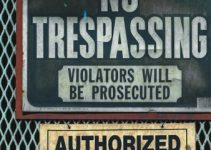Can Police be Charged with Trespassing?
The police are tasked with protecting and serving the public, but what happens when they overstep their boundaries? In recent years, there have been several cases of police officers being accused of trespassing during routine investigations or arrests. This raises an important question: Can police officers be charged with trespassing? The answer is not as straightforward as you may think.
In this post, we will explore the legalities surrounding police officers and trespassing, including:
- when the police are allowed to enter private property.
- the circumstances under which the police can be charged with trespassing.
- what you can do if you believe your rights have been violated.
Whether you are a law enforcement officer or a member of the public, understanding the legalities of trespassing is crucial for protecting your rights and ensuring justice is served.
Legal Concept of Trespassing
Trespassing is a legal concept that refers to the act of entering or remaining on someone else’s property without permission. It is generally considered a civil offense, but in some cases, it can also be a criminal offense. The concept of trespassing is deeply rooted in property rights and serves to protect the rights of property owners.
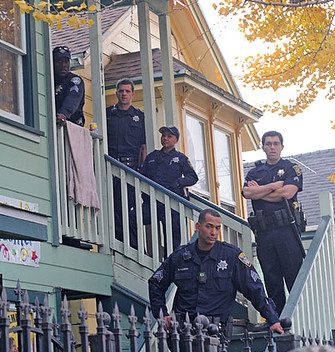
The idea behind trespassing is fairly straightforward. Property owners have the right to control who enters their property and for what purpose. When someone enters another person’s property without permission, they are infringing upon this right and are considered trespassers.
Trespassing can occur in various forms, such as physically entering someone’s land, crossing over boundaries without permission, or remaining on the property after being asked to leave. It is important to note that trespassing laws may vary from jurisdiction to jurisdiction, so it is crucial to understand the specific laws in your area.
In the context of this blog post, we will explore an intriguing question: Can police officers be charged with trespassing? While police officers are generally granted certain powers and authorities in the course of their duties, there are instances where their actions may be deemed as trespassing. Understanding the legalities surrounding this issue is essential to gaining a comprehensive view of the topic.
Limitations of Law Enforcement
Law enforcement plays a crucial role in maintaining law and order within a society. However, it is essential to understand their rights and limitations to ensure a fair and just legal system. One question that often arises is whether police officers can be charged with trespassing in certain situations.
To explore this topic, we need to delve into the legal framework that governs the actions of law enforcement officers. In general, police officers have the authority to enter private property under specific circumstances, such as when they have a search warrant or a reasonable belief that a crime is being committed on the premises. This authority is granted to them to carry out their duties effectively and protect public safety.
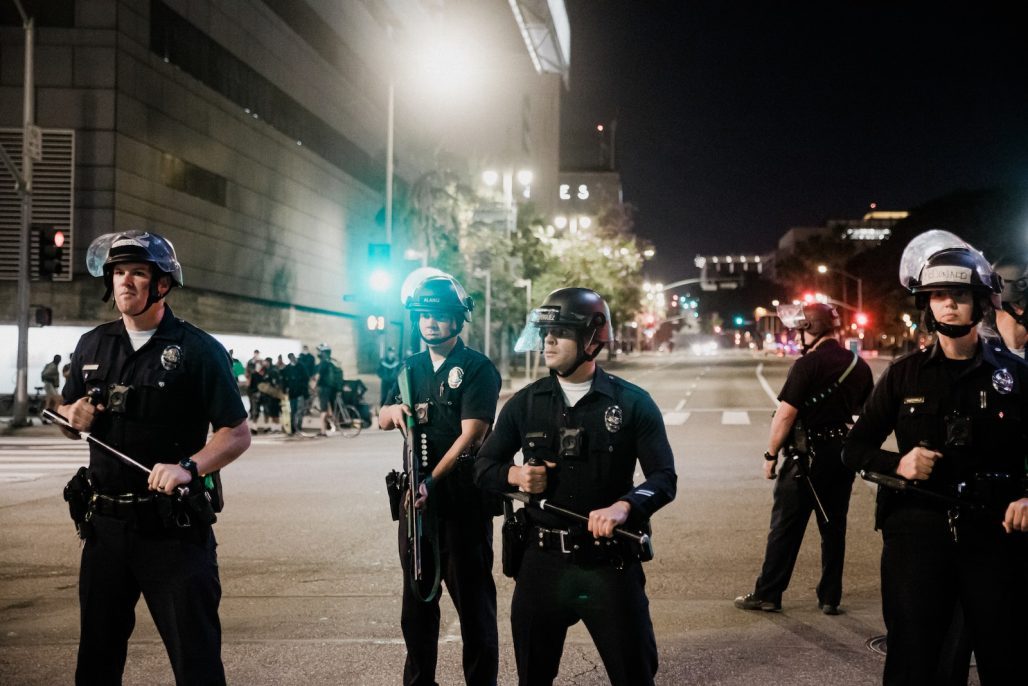
However, this authority is not absolute, and officers must adhere to certain limitations in order to respect individual rights. For instance, police officers cannot enter a person’s property without consent or a valid search warrant, unless there are exigent circumstances that require immediate action to prevent harm or the destruction of evidence.
Trespassing charges against police officers typically arise when they enter private property without any legal justification or exceed the scope of their authorized actions. In such cases, individuals may have the right to file a complaint or pursue legal action against the officers involved.
Instances Police May Be Trespassing
Instances, where police officers can be charged with trespassing, are relatively rare but not unheard of. While police officers have certain powers and authorities granted to them by law, there are situations where they can overstep their boundaries and find themselves facing legal consequences.
Without a valid search warrant
One such instance is when a police officer enters a private property without a valid search warrant or without the owner’s consent. In order for a search to be considered legal, the police must have probable cause or a reasonable suspicion of criminal activity. If they enter a property without meeting these requirements, they may be charged with trespassing.
Exceed the Scope of Authority
Another situation where police officers can be charged with trespassing is when they exceed the scope of their authority during a search. For example, if they are authorized to search a specific room but end up searching other areas of the property without justification, they may be held liable for trespassing.
Asked to Leave
Additionally, if a police officer continues to remain on private property after being asked to leave by the owner or occupant, they can be charged with trespassing. This applies even if they initially had a valid reason to be on the property but overstayed their welcome without proper justification.
Can Police Officers Enter Your Property If Your Fence Has a No Trespassing Sign?
The Fourth Amendment is one of those laws many people take at face value; while it protects individuals against overzealous actions by law enforcement agents, it has its limitations. Failure to understand these limitations tends to result in many defendants’ disappointment (and jail time).

If you’re unsure about the scope of this law, it is best to speak with a professional criminal defense lawyer. This is especially crucial if you’re facing criminal charges due to searches and seizures that you believe to be unlawful. Of course, if things get that far, it may already be too late. It’s always best to reach out to such a lawyer when you’re in a situation where your residence may be the subject of a police raid. This ensures that you fully understand your rights.
Exigent Circumstances
The term Exigent Circumstances refers to situations where there is an immediate threat to public safety or the potential for the destruction of evidence. For example, if the police receive a report of a domestic disturbance and hear sounds of violence or cries for help from inside a residence, they may enter the property without a warrant to prevent harm to the individuals involved.
A ‘No Trespass Sign’
Many homeowners believe that a ‘No Trespass’ sign is sufficient protection from police searches and seizures. While these signs will surely deter a significant number of intruders, they have no bearing on any actions taken by law enforcement agents. Police officers or any other government agents with authorization to raid your residence will do so regardless of how big or how many such signs you erect around your property.
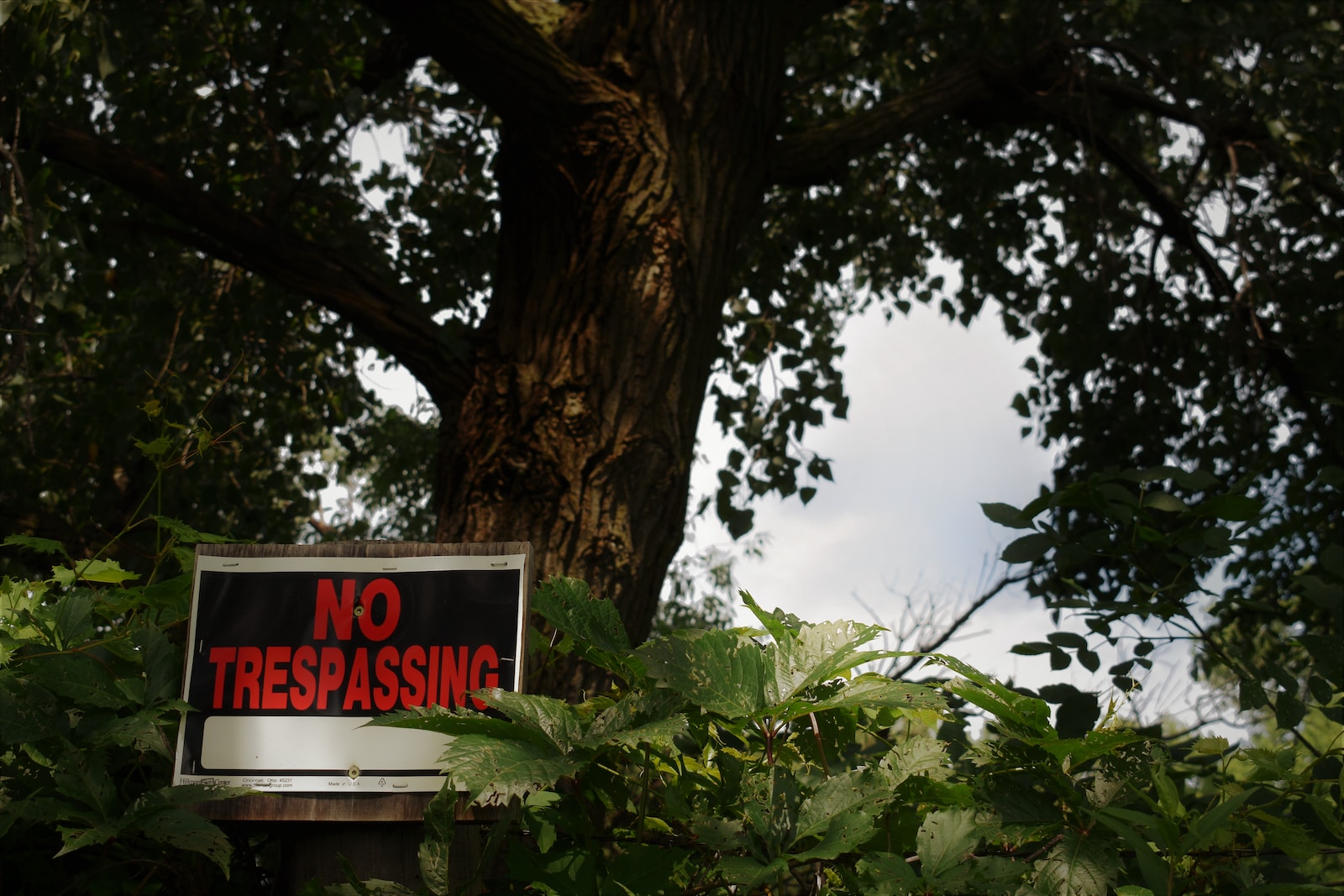
Suspicion
Some jurisdictions have specific laws or regulations that grant police officers the authority to enter private property under certain circumstances. These may include situations where there is a suspicion of illegal activity, such as drug manufacturing or trafficking, or when there is a need to protect public safety.
However, there are limitations on the actions police officers can take while on someone else’s property. They must still act within the scope of their duties and adhere to constitutional rights, such as conducting searches and seizures in a reasonable manner.
Lawful Searches and Seizures
The Fourth Amendment states,
“…no warrants shall be issued, but upon probable cause, supported by oath or affirmation, and particularly describing the place to be searched, and the person or things to be seized.”
Before any judge can authorize a search or seizure warrant, there must be a good reason to do so. Police officers showing up at your residence to conduct a search and seizure of certain items as evidence means that they’ve fulfilled this part of the Fourth Amendment. This is not just a subjective matter; the judge must examine the evidence for why such an action is necessary and reasonable. Sometimes, the prosecutor filing the petition for a warrant may need to speak with the judge personally to explain why this is necessary. The judge will then determine if there is probable cause to authorize a search or seizure warrant.
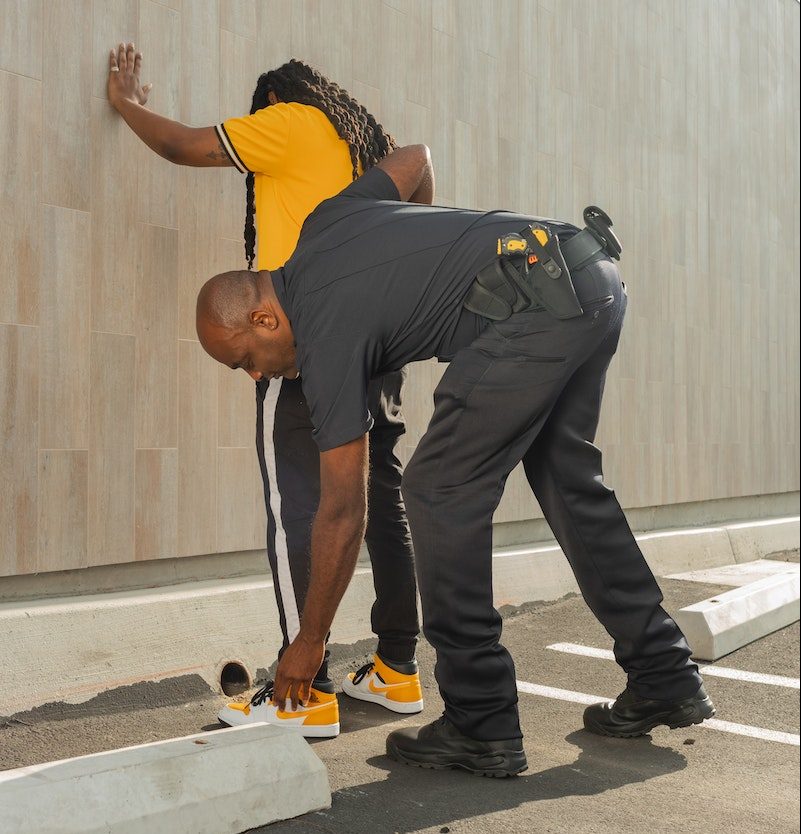
The term “probable cause” may itself be subjective. However, the system has some guidelines to help judges determine what constitutes probable cause. For instance, if a suspect has a criminal history of drug trafficking and weapons smuggling, such an individual is a person of interest in a drug case will likely sway the judge to grant a search warrant for the suspect’s residence. This example is one of many in which the authorities are at liberty to invade a person’s residence to search regardless of whether or not the ‘No Trespass’ sign is there.
In such cases, the police don’t even need to announce their presence or identify themselves with house occupants. While they may do it as a courtesy, the warrant authorizes them to enter the house by any means necessary. This also means they can access the residence forcibly by breaking down the door.
Consent and Warrant Requirements
When it comes to understanding the legalities surrounding police actions and trespassing, the role of consent and warrant requirements plays a crucial role. Consent is a key factor in determining whether or not police can be charged with trespassing.
In general, when a person gives their consent to allow law enforcement officers onto their property, it is considered a lawful entry. This means that if the police have obtained consent from the property owner or occupant, they are not trespassing.
Consent must be freely given and not obtained through coercion or deception. If the police use tactics that manipulate or pressure someone into giving consent, it may not be considered valid.
On the other hand, when it comes to warrant requirements, the Fourth Amendment of the United States Constitution protects individuals from unreasonable searches and seizures. This means that in most cases, police officers are required to obtain a warrant before entering someone’s property unless certain exceptions apply.
These exceptions include situations where there is probable cause to believe that a crime is being committed, exigent circumstances that require immediate action, or when consent has been given.
What Does the Fourth Amendment Protect Against?
Protection against the high-handedness of law enforcement is the founding principle of the Fourth Amendment. It is to ensure that the police and other government agencies do not abuse the power vested in them by the state.

Many modern scenarios were not envisioned when the Fourth Amendment became law more than two centuries ago. As such, there have been numerous incidents of searches and seizures that may not seem clear under the provision of the Fourth Amendment. This has forced both state and federal courts to intervene, adjudicating these cases by interpreting the Fourth Amendment and making exceptions accordingly.
Even with clear “No Trespass” signs, police can enter such a residence to execute a warrant. The courts overwhelmingly rule in favor of law enforcement if the suspect files a lawsuit alleging unlawful searches and seizures. However, there are some gray areas with the interpretation of this Amendment.
How to Keep Police off Your Property
Knowing the ins and outs of your constitutional rights when it comes to law enforcement is essential. Legally speaking, areas surrounding your home are defined as ‘curtilage’ and as such, have the same protections against searches as your home does. This means police can only enter the curtilage of private property if they have either a warrant for arrest or a search warrant.
If a law enforcement agent approaches your property and does not possess either a search warrant or an arrest warrant, you are fully within your rights to request that they leave your premises. It is at this point that the officer has no legal authority to remain on your property and must comply with your wishes.
The line between what is protected by the Fourth Amendment and what is not can be drawn on the basis of plain view. When it comes to a fence protecting your backyard from public view, you have a reasonable expectation of privacy, and police do need a warrant to enter. However, if your backyard is visible without obstruction, this expectation of privacy is diminished.

If there is a path leading to your backyard with an open gate, then people may assume that it is an invitation to enter and police don’t require a warrant. Police also don’t need a search warrant when they witness criminal activity happening in plain sight – an exception to the warrant requirement.
If a police officer approaches you on your property and has neither a search nor an arrest warrant, you are within your rights to ask them to leave.
They cannot stay unless they have proper authorization from a judge and evidence suggesting probable cause of criminal activity. If ever confronted with an unlawful search, stay informed about your rights to protect yourself from unnecessary encroachments.
Reasonable Expectation of Privacy
A reasonable expectation of privacy is a legal provision for any private citizen. This means they do not expect the police or anyone to intrude on their privacy in such places. For instance, if you’re resting in your house, you expect no intrusion from strangers, including the police. This expectation of privacy extends beyond the home to include places like a hotel room, a public toilet, specific areas of a jailhouse, or the inside of one’s car.
Places where such expectation of privacy is forfeited, include:
- Public buildings.
- Streets.
- Garbage cans in public areas.
- All other places are considered public.
The police cannot barge into your home without a warrant because of the expectation of privacy principle supported by the Fourth Amendment. When a search warrant is issued, such an expectation of privacy is nullified. In such cases, a “No Trespass” sign cannot deter the police from invading your privacy.

Sometimes, the police may need to speak with a suspect. This is one of those situations where a warrant is not needed even when the line of questioning could result in a suspect being incriminating. The argument here is of an “implied right.” This is the implied right of any individual, whether to speak to the owner of the house or to make an inquiry. Legally, anyone can knock on another person’s door for whatever reason as long as they’re not disturbing the peace or doing anything illegal.
The police have this same implied right when it comes to talking to a suspect. Of course, during such an encounter, they cannot seize anything or search without a warrant or the owner’s consent. Of course, there are exceptions. For instance, if there’s a locked gate as part of a suspect’s property, the police cannot scale its surrounding fence in an effort to speak with a suspect if they don’t have a warrant.
Ultimately, the situations where a suspect feels their right to privacy has been violated can fall in a grey area. The same can happen in cases of searches and seizures in different circumstances. Astute legal representation is key when one feels their rights have been violated.
Filing a complaint against a police officer for trespassing
If you believe that a police officer has trespassed on your property, it is important to understand the process for filing a complaint. While this may vary depending on your jurisdiction, there are some general steps you can take to address the situation.
- Document the incident: Start by gathering any evidence related to the alleged trespassing. This could include photographs, videos, or witness statements. It is crucial to have clear and detailed documentation to support your complaint.
- Know your rights: Familiarize yourself with the laws and regulations regarding trespassing in your jurisdiction. This will help you understand if the officer’s actions indeed constitute trespassing and if they have violated any laws or regulations.
- File a complaint with the police department: Contact the internal affairs division or professional standards department of the police agency involved. They are responsible for handling complaints against officers. Provide them with a detailed account of the incident and any evidence you have collected.
- Seek legal advice: If you believe that your complaint is not adequately addressed by the police department, it may be advisable to consult with a lawyer who specializes in civil rights or police misconduct. They can guide you through the legal process and help protect your rights.
- Cooperate with the investigation: If your complaint is taken seriously, an investigation will be conducted. Be prepared to provide additional information or testify if necessary. Cooperating fully with the investigation can help ensure a fair and thorough examination of your complaint.
- Follow up on the investigation: Stay informed about the progress of the investigation. If you believe that it is not being handled properly, you may have additional options, such as filing a complaint with a civilian oversight board or contacting a relevant government agency responsible for police oversight.
Key Takeaways
Understanding the legalities surrounding charging police officers with trespassing can be a complex and nuanced topic. It is important to recognize that the laws and regulations governing law enforcement actions can vary depending on the jurisdiction and specific circumstances involved.
- Trespassing charges against police officers are possible in certain situations where they enter private property without lawful authority or consent.
- The legality of police actions should be evaluated on a case-by-case basis, considering factors such as reasonable suspicion, probable cause, and adherence to established protocols.
- Civil rights violations or instances of excessive use of force should be reported and addressed through appropriate channels, such as filing complaints with internal affairs or seeking legal recourse.
- Consult with legal professionals who specialize in criminal law or civil rights if you believe you have a valid case against police officers for trespassing or other misconduct.
Our blog post has shed light on an important legal question: Can police be charged with trespassing? We hope that through our comprehensive analysis, you now have a better understanding of the complexities surrounding this issue. While the answer may vary based on jurisdiction and specific circumstances, it is crucial to consult with legal professionals for accurate advice. Understanding the legalities surrounding police actions is an important aspect of upholding justice and protecting individual rights. Remember to stay informed and educated on your rights, as well as the laws in your jurisdiction, to ensure a fair and just society for all.

